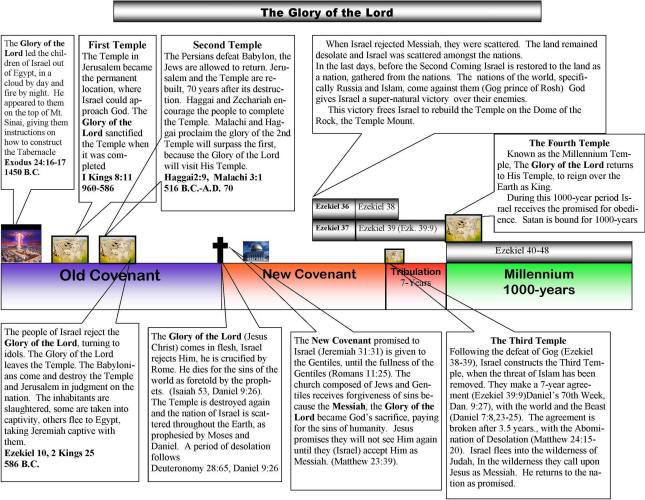
1. Introduction to Ezekiel
2, Ezekiel Chapter 1
(The Glory of the Lord)
3. Ezekiel Chapters 2-7
(Ezekiel the Watchman)
4. Ezekiel Chapters 8-11
(The Glory of the Lord leaves)
5. Ezekiel Chapter 12-24 (Sins of the land)
6. Ezekiel Chapter 25-33 (Judgment of
the nations)
7. Ezekiel Chapter 33-36 (Israel blessed)
8. Ezekiel Chapter 37 Valley of Dry Bones
9. Ezekiel Chapter 38, Gog, prince of Rosh
10. Ezekiel Chapter 39, Gog, prince of Rosh, Part II
|
The people had turned from the Living God to idols; they worshipped the gods of the lands. Their idol worship was not just simple prayers, but also involved the sacrifice of living boys and girls on the red hot arms of the Moabite god Chemosh. The nation indulged in sexual sin with temple prostitutes in the very city of Jerusalem, mocking the Lord God who had established them in the land.
False prophets and prophetesses were among the people countering the message of repentance from Jeremiah and Ezekiel, assuring the people they would not be judged. They led the people away from the Glory of the Lord. Godís solution was radical judgment against the land; God would fulfill the promises of the covenant established at Mount Ebal (Deut 27-29). The Babylonians were called to destroy the city of Jerusalem, the Temple Solomon had built and take the people into captivity.
Only twice in Israelís history has the nation been scattered; the first time involved the Babylonian period 605 B.C. to 586 B.C (above), the second time was A.D. 70 when the Romans scattered the nation throughout the Roman Empire. To this day, the Jewish people are the descendents of this scattered nation. Ezekielís message was harsh but God tempered the message with hope. There was a coming day of restoration when the nation would one day receive the blessings of a new and greater Covenant.
Throughout
Ezekiel the focus is on a greater fulfillment, a period when God
will restore the nation and establish an everlasting covenant. This
everlasting covenant was offered at the first coming of Jesus Christ
but Israel rejected it. The Messiah was cut-off, fulfilling what the
prophets foretold (Daniel 9:26,
Ezekiel wrote about a day of gathering after they were scattered; the nation would be restored, except its restoration was permanent and eternal, resulting in the reign of the Glory of the Lord.
Chapter 12: The Exile Symbolized
Ezekiel becomes a symbol to the captives, who he lives among. God commands Ezekiel to bring out his belongings during the day. God then commands him to dig through the wall of his home and carry out his belongings on his shoulder, while not looking at the ground. Two meanings are implied by Ezekielís symbolic actions: 1. The nation (those who remain in Jerusalem) will be sent into exile (586 B.C.) to join those who are already in Babylon, while others will be scattered into the nations. 2. The prince Zedekiah will go into captivity but will not see the land because he will be blinded by Nebuchadnezzar.
Chapter 13: False Prophets Condemned
One of Israelís problems was the collection of false prophets and prophetess who led them down the wrong path with false messages. Here Ezekiel proclaims judgment against these two groups. He declares:
6 "They have envisioned futility and false divination, saying, 'Thus says the Lord!' But the Lord has not sent them; yet they hope that the word may be confirmed. 7 "Have you not seen a futile vision, and have you not spoken false divination? You say, 'The Lord says,' but I have not spoken." Ezekiel 13:6-7
They proclaimed a false peace, when God had declared judgment. They made the people of the land rest in lies, rejecting the words of Jeremiah and Ezekiel the prophets who proclaimed judgment against the land.
16 'that is, the prophets of Israel who prophesy concerning Jerusalem, and who see visions of peace for her when there is no peace,' " says the Lord God. 17 "Likewise, son of man, set your face against the daughters of your people, who prophesy out of their own heart; prophesy against them, 18 "and say, 'Thus says the Lord God: "Woe to the women who sew magic charms on their sleeves and make veils for the heads of people of every height to hunt souls! Will you hunt the souls of My people, and keep yourselves alive? Ezekiel 13:16-18
Later, the Lord declares that He would free His people from their captivity to these false prophets who have ensnared them in lies.
Chapter 14: Idolatry in the heart and inescapable judgment
Ezekiel deals with two aspects of Israelís sin, the personal sin of the people through idolatry, and the unfaithfulness of the land, both of which brought on Godís judgment. The captives came to ask Ezekiel to inquire about the Lord. God replies by condemning the spiritual condition of those who would inquire of God, declaring the people have set up idols in their hearts.
3 "Son of man, these men have set up their idols in their hearts, and put before them that which causes them to stumble into iniquity. Should I let Myself be inquired of at all by them?
4 "Therefore
speak to them, and say to them, 'Thus says the Lord God: "Everyone
of the house of Israel who sets up his idols in his heart, and puts
before him what causes him to stumble into iniquity, and then comes
to the prophet, I the Lord will answer him who comes, according to
the multitude of his idols,
According to the sin of the individual person, God will answer the sinner; the personal idols established in the lives of the captives caused them to sin. The sins of the land were so great that Godís judgment was fourfold; sword, famine, wild beasts and plagues. From this chapter we can draw principles on how God judges a nation which turns away from Him. A nation and a land which sins against the Lord invites His judgment, just like the land of Judah and Israel. Their persistent sin without repentance forced God to respond.
13 "Son of man, when a land sins against Me by persistent unfaithfulness, I will stretch out My hand against it; I will cut off its supply of bread, send famine on it, and cut off man and beast from it.
14 "Even if these
three men, Noah, Daniel, and Job, were in it, they would deliver
only themselves by their righteousness," says the Lord God.
The judgment was so severe that if Daniel, Noah and Job were all in the land, their righteousness would only cause their deliverance, even their children would not be spared. This is a lesson for any nation, including the United States. If we as a nation continue in sin, we invite Godís wrath. Ezekiel would witness Godís judgment through those who would survive it and would be brought into captivity to the place where Ezekiel was living.
Chapter 15: Jerusalem a useless vine
Again God declares His judgment against the land, comparing Jerusalem to a useless vine which is only good for burning. Because the nation was unfaithful, the Lord would cause the land to be desolate. If a nation turns away from the Lord in unfaithfulness, that nation invites Godís judgment.
Ezekiel traces the spiritual heritage of Jerusalem as a bride for the Lord, which is the ultimate picture of Jerusalem in the book of Revelation chapter 21 and 22. This chapter begins by picturing Jerusalem as an abandoned baby thrown into an open field by its parents, a Hittite mother and an Amorite father. The Lord found Jerusalem kicking in its blood. He saved it, nurtured it and covered her nakedness. God adorned the city by taking it for His wife. Jerusalem, the city of God, turned away from the Lord by trusting in her own beauty. She became a prostitute looking to the idols of the nations for fulfillment. Jerusalem turned to the occult and fertility practices of the nations which surrounded her, predicating the sexual prostitution. She took the blessings received from the Lord and offered them idols.
15 "But you trusted in your own beauty, played the harlot because of your fame, and poured out your harlotry on everyone passing by who would have it. 16 "You took some of your garments and adorned multicolored high places for yourself, and played the harlot on them. Such things should not happen, nor be. 17 "You have also taken your beautiful jewelry from My gold and My silver, which I had given you, and made for yourself male images and played the harlot with them. 18 "You took your embroidered garments and covered them, and you set My oil and My incense before them.
Jerusalem then offered its children, through child sacrifice, to these same idols. Jeremiah, like Ezekiel, condemns the land for the child sacrifice. The judgment of the land continues to build as Israel imitates the practices of the nations. God Himself is behind the destruction of Jerusalem in 586 B.C., as a result of these sins.
31 "And they have built the high places of Tophet, which is in the Valley of the Son of Hinnom, to burn their sons and their daughters in the fire, which I did not command, nor did it come into My heart.
32 "Therefore
behold, the days are coming," says the Lord, "when it will o more be
called Tophet, or the Valley of the Son of Hinnom, but the Valley of
Slaughter; for they will bury in Tophet until there is no room.
Even with the judgment, the Lord looks forward to a day of Redemption, when Jerusalem will be restored as the city of God. This event is featured in the 2nd half of Ezekiel, specifically chapters 40-48, when the Glory of the Lord returns to Jerusalem to dwell with His people.
60 "Nevertheless I will remember My covenant with you in the days of your youth, and I will establish an everlasting covenant with you. 62 "And I will establish My covenant with you. Then you shall know that I am the Lord,
This day will come when Israel comes to know Jesus Christ as the Messiah and savior of Israel.
Chapter 17: Two Eagles and the vine
Zedekiah rebelled against Babylonian rule by turning to Egypt for help. Here, the Lord pictures Israel as the top of a cedar tree from Lebanon plucked up and planted in a distant land by a great colorful eagle (Nebuchadnezzar). Rather than growing, the top of the cedar becomes a vine which is pursued by another great eagle (Egypt). Therefore, the vine was uprooted and destroyed by the first Eagle (Nebuchadnezzar) in 586 B.C. Finally, God Himself plucks the top shoot of the cedar and plants it on the mountains of Israel causing it to become a great tree with birds of every kind nesting in it, and all the trees of the field knowing the Lord planted it. Ezekiel 17 moves past the judgment and toward the eternal kingdom when the Glory of the Lord will rule over the nation. At this time, Israel as a nation will be blessed over the other nations of the earth.
22 Thus says the Lord God: "I will take also one of the highest branches of the high cedar and set it out. I will crop off from the topmost of its young twigs a tender one, and will plant it on a high and prominent mountain. 23 "On the mountain height of Israel I will plant it; and it will bring forth boughs, and bear fruit, and be a majestic cedar. Under it will dwell birds of every sort; in the shadow of its branches they will dwell.
24 "And all the
trees of the field shall know that I, the Lord, have brought down
the high tree and exalted the low tree, dried up the green tree and
made the dry tree flourish; I, the Lord, have spoken and have done
it."
The people of the land were blaming their problems on their fatherís sins; the Lord rebukes this thinking, proclaiming everybody is responsible for their own sins.
2 "What do you
mean when you use this proverb concerning the land of Israel,
saying: 'The fathers have eaten sour grapes, And the children's
teeth are set on edge'?
The Lord was seeking the restoration of souls to righteousness, judgment was coming against the land, and the Babylonians were about to destroy Jerusalem and the Temple though some would be saved. This group included those in whom righteousness was found (Ezekiel 9:4) and who would be rescued from the wrath to come. God can preserve His people even while He is judging the land. This chapter is not speaking of a works based salvation, but a temporal salvation from Godís judgment and wrath about to be unleashed on Jerusalem. This same principle applies to our world today. If God chooses, He can deliver His people from the wrath coming against the world. Sons are not judged for their fatherís sin; the wicked man can turn from his sin and receive a reprieve from Godís judgment because God is gracious to the sinner.
20 "The soul who
sins shall die. The son shall not bear the guilt of the father, nor
the father bear the guilt of the son. The righteousness of the
righteous shall be upon himself, and the wickedness of the wicked
shall be upon himself. ...
27 "Again, when a
wicked man turns away from the wickedness which he committed, and
does what is lawful and right, he preserves himself alive.
God wants Israel to turn from theirs ways so that He does not have to judge them, knowing that in the end Israel will turn from their ways and receive the blessings of the New Covenant (Jeremiah 31:31) promised in scripture and fulfilled in the Millennium. This is the focus of Ezekiel, this new relationship that God will one day have with His people.
31 "Cast away from you all the transgressions which you have committed, and get yourselves a new heart and a new spirit. For why should you die, O house of Israel?
32 "For I have no
pleasure in the death of one who dies," says the Lord God.
"Therefore turn and live!"
Chapter 19: A Lament for Israelís Kings
The kings of Israel are pictured as caged lions, one of whom is pictured being taken to Babylon. This either refers to Jehoiachin who was taken captive in 597 B.C. or Zedekiah who would be taken captive in 586 B.C. after Jerusalem was destroyed. The king of Israel is then pictured as an uprooted vine planted in the desert.
Chapter 20: Rebellious Israel & Restored Israel
Here in the 20th chapter, the Book of Ezekiel reveals the destiny of Israel. First, they are chosen by God but choose to be disobedient. Second, God promises to fulfill His word and bless the nation one day with restoration. On the one hand they are chosen by God out of all the nations of the earth to be a peculiar people, a nation of priests and kings (Deut. 7:7). However, the nation, even though chosen by God, was in a continuous state of rebellion. In the desert, the nation made a covenant agreement; if they obeyed they would be blessed above all nations (Deut. 28:1), if they disobeyed they would be scattered amongst the nations. Since God was about to judge them via the nation of Babylon, they are reminded here in Ezekiel of the promises made in the desert.
23 "Also I raised My hand in an oath to those in the wilderness, that I would scatter them among the Gentiles and disperse them throughout the countries, 24 "because they had not executed My judgments, but had despised My statutes, profaned My Sabbaths, and their eyes were fixed on their fathers' idols. Ezekiel 20:23-24
Even though God promises judgment through the words of Jeremiah and Ezekiel, He also promises restoration of the nation. This restoration is revealed in greater detail in Chapters 36 through 48; here God tempers His judgment with the promise of restoration. Israelís problem is that they wanted to be like the nations, rather than to be Godís nation.
31 "For when you offer your gifts and make your sons pass through the fire, you defile yourselves with all your idols, even to this day. So shall I be inquired of by you, O house of Israel? As I live," says the Lord God, "I will not be inquired of by you.
32 "What you have
in your mind shall never be, when you say, 'We will be like the
Gentiles, like the families in other countries, serving wood and
stone.'
Despite Israelís obstinate heart, and their scattering amongst the nations, they will one day be gathered and blessed as promised.
40 "For on My holy mountain, on the mountain height of Israel," says the Lord God, "there all the house of Israel, all of them in the land, shall serve Me; there I will accept them, and there I will require your offerings and the firstfruits of your sacrifices, together with all your holy things. 41 "I will accept you as a sweet aroma when I bring you out from the peoples and gather you out of the countries where you have been scattered; and I will be hallowed in you before the Gentiles. 42 "Then you shall know that I am the Lord, when I bring you into the land of Israel, into the country for which I raised My hand in an oath to give to your fathers. 43 "And there you shall remember your ways and all your doings with which you were defiled; and you shall loathe yourselves in your own sight because of all the evils that you have committed. 44 "Then you shall know that I am the Lord, when I have dealt with you for My name's sake, not according to your wicked ways nor according to your corrupt doings, O house of Israel," says the Lord God.' "
Chapter 21: Babylon Godís Sword of Judgment
Babylon is coming for judgment against the land. Ezekiel is told to sigh in the presence of the people. When asked why he is sighing, he is to tell them that the news of what is coming will make every heart melt. The kingship of Israel will be over until the Messiah, the Glory of the Lord, returns.
26 'thus says the Lord God: "Remove the turban, and take off the crown; Nothing shall remain the same. Exalt the humble, and humble the exalted.
27 Overthrown,
overthrown, I will make it overthrown! It shall be no longer, Until
He comes whose right it is, And I will give it to Him."
Chapter 22: Jerusalemís sins
Ezekiel presents the sins of the land showing why God is going to bring judgment. Notice the rulers invite judgment by their leadership. 6 "Look, the princes of Israel: each one has used his power to shed blood in you. 7 "In you they have made light of father and mother; in your midst they have oppressed the stranger; in you they have mistreated the fatherless and the widow. 8 "You have despised My holy things and profaned My Sabbaths. 9 "In you are men who slander to cause bloodshed; in you are those who eat on the mountains; in your midst they commit lewdness. 10 "In you men uncover their fathers' nakedness; in you they violate women who are set apart during their impurity. 11 "One commits abomination with his neighbor's wife; another lewdly defiles his daughter-in-law; and another in you violates his sister, his father's daughter.
12 "In you they
take bribes to shed blood; you take usury and increase; you have
made profit from your neighbors by extortion, and have forgotten
Me," says the Lord God.
During that time, God sought people to intervene, to stand in the gap; today God is looking for people to do the same. He is looking for intercessors, people who will make a difference.
30 "So I sought for a man among them who would make a wall, and stand in the gap before Me on behalf of the land, that I should not destroy it; but I found no one.
31 "Therefore I
have poured out My indignation on them; I have consumed them with
the fire of My wrath; and I have recompensed their deeds on their
own heads," says the Lord God.
Jerusalem, the capital of Judah, and Samaria, the capital of Israel, are pictured as two prostitutes named Oholah (Samaria) and Oholibah (Jerusalem) who look to the nations for help. They seek the help of Assyria, Babylon and Egypt rather than turning to the Lord. Therefore, God will turn them over to their lovers.
35 "Therefore thus says the Lord God: 'Because you have forgotten Me and cast Me behind your back, Therefore you shall bear the penalty Of your lewdness and your harlotry.' " 36 The Lord also said to me: "Son of man, will you judge Oholah and Oholibah? Then declare to them their abominations. 37 "For they have committed adultery, and blood is on their hands. They have committed adultery with their idols, and even sacrificed their sons whom they bore to Me, passing them through the fire, to devour them.
Chapter 24: The cooking pot
Ezekiel 10 begins with the Babylonians laying siege to Jerusalem on January 15th 588 B.C. Jerusalem is pictured as a cooking pot about to be emptied of its contents. The pot is melted because it is worthless. At the time Jerusalem is besieged, tragedy strikes Ezekiel. His wife dies but he is told by the Lord not to mourn or cry because Ezekielís wife is a picture of The Temple in Jerusalem, the ďdesire of the eyesĒ. Like Ezekiel, the people will not mourn when they hear about the destruction of Jerusalem. Ezekiel is a sign to the people; when survivors arrive from Jerusalemís destruction, God opens the mouth of Ezekiel.
25 'And you, son of man-will it not be in the day when I take from them their stronghold, their joy and their glory, the desire of their eyes, and that on which they set their minds, their sons and their daughters: 26 'on that day one who escapes will come to you to let you hear it with your ears;
27 'on that day
your mouth will be opened to him who has escaped; you shall speak
and no longer be mute. Thus you will be a sign to them, and they
shall know that I am the Lord.' "
|
Ezekiel Chapters 12 to 24
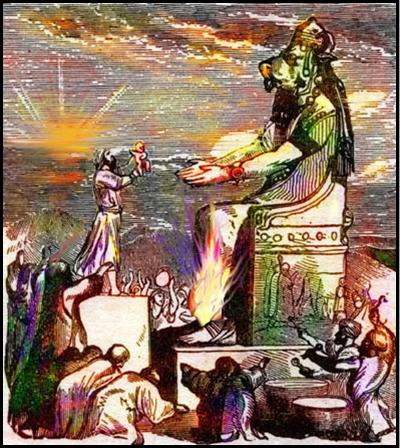 Why
did God seem so harsh with Israel and Judah? What did the people do that His
judgment was so severe? In this section of Ezekiel, scripture reveals the
extent of Israelís fall from the time they entered the Promised Land.
Why
did God seem so harsh with Israel and Judah? What did the people do that His
judgment was so severe? In this section of Ezekiel, scripture reveals the
extent of Israelís fall from the time they entered the Promised Land.
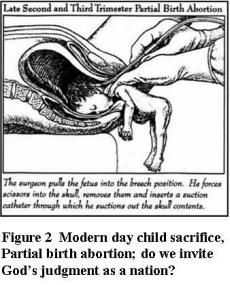 Chapter
16: Jerusalem the unfaithful wife
Chapter
16: Jerusalem the unfaithful wife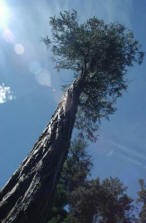
 In
597 B.C., Ezekiel, along with Jehoiachin, was taken captive into
Babylon by King Nebuchadnezzar, and Zedekiah, his uncle, was made
king.
In
597 B.C., Ezekiel, along with Jehoiachin, was taken captive into
Babylon by King Nebuchadnezzar, and Zedekiah, his uncle, was made
king. 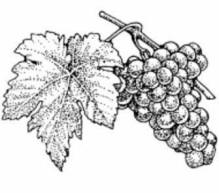 Chapter
18: The Soul who sins will die
Chapter
18: The Soul who sins will die Chapter
23: The two adulterous sisters
Chapter
23: The two adulterous sisters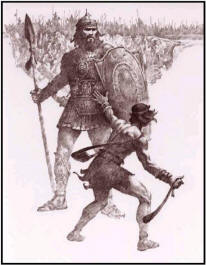 Israel
Israel